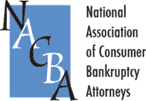
One of the biggest concerns that people who file bankruptcy in San Diego and nationally have is their credit. Specifically, how long will it take them to dig out of the credit hole that having a bankruptcy on a credit report will create?
First, it’s important to note that although a bankruptcy will negatively affect your credit, it is surely better than the alternative—paying minimum payments on cards while being in default for the next 20 years. With a bankruptcy, particularly a Chapter 7, you begin to build credit the day after your bankruptcy is over. Every day that goes by is another day farther from your bankruptcy and a day closer to better credit.
There are things you can do to help the process of improving credit along after bankruptcy. One is establishing new credit.
New Credit Offers After Bankruptcy
Many clients are surprised to learn how easy it is to get certain kinds of credit, sometimes immediately after bankruptcy. And while we don’t advocate digging yourself into a credit hole after you’ve gotten your Chapter 7 discharge, it is wise to start having some credit, and paying it off timely on a monthly basis to build your credit back up.
One way to do this is through credit cards, which will be offered to you after your discharge. Creditors know you’re a safe bet—you just discharged your debts, and can’t do so again for 8 years, and so you’re a great target for credit.
The offers you get may not be fantastic, or have the best terms. In many cases, you will be offered secured credit cards—cards that you may have to put a deposit down on, and then borrow against.
What to Look For With Credit Offers After Chapter 7 Bankruptcy
A recent article on Investopedia analyzed the best post-bankruptcy credit cards for bankruptcy debtors. You can read the article in full there, but some things to look for when getting secured cards include:
- Fees – Is there a yearly membership fee? Or a monthly maintenance fee? Some can be as high as $75 per year, and $6 a month. Some have none at all.
- Interest – Do not be too concerned over interest. You will only be putting a small amount on your new card, and paying it off immediately. The interest won’t kill you as much as building credit will help you. Some cards also offer grace periods, where they will asses no interest if you pay in a specified period of time.
- Reporting – Make sure you get a card that reports timely payments to the major credit reporting agencies, otherwise you’re not doing yourself much good. The major providers usually do, but call to be sure before you take out the card.
- Secured to unsecured – Some cards will let you change from secured to unsecured (and return your deposit) after a certain period of demonstrated timely repayments.
Bankruptcy is not the end of your credit. It’s more like the beginning. With proper post Chapter 7 discharge planning, and responsible use of credit, you may find yourself in the land of better credit sooner than you think after filing bankruptcy.
If you’re considering bankruptcy, you want lawyers that are with you even after your discharge is entered. Let experienced San Diego bankruptcy attorneys evaluate your case and discuss with you the best and safest path to good credit and a fresh start. Contact the Bankruptcy Law Center for a free consultation today.









